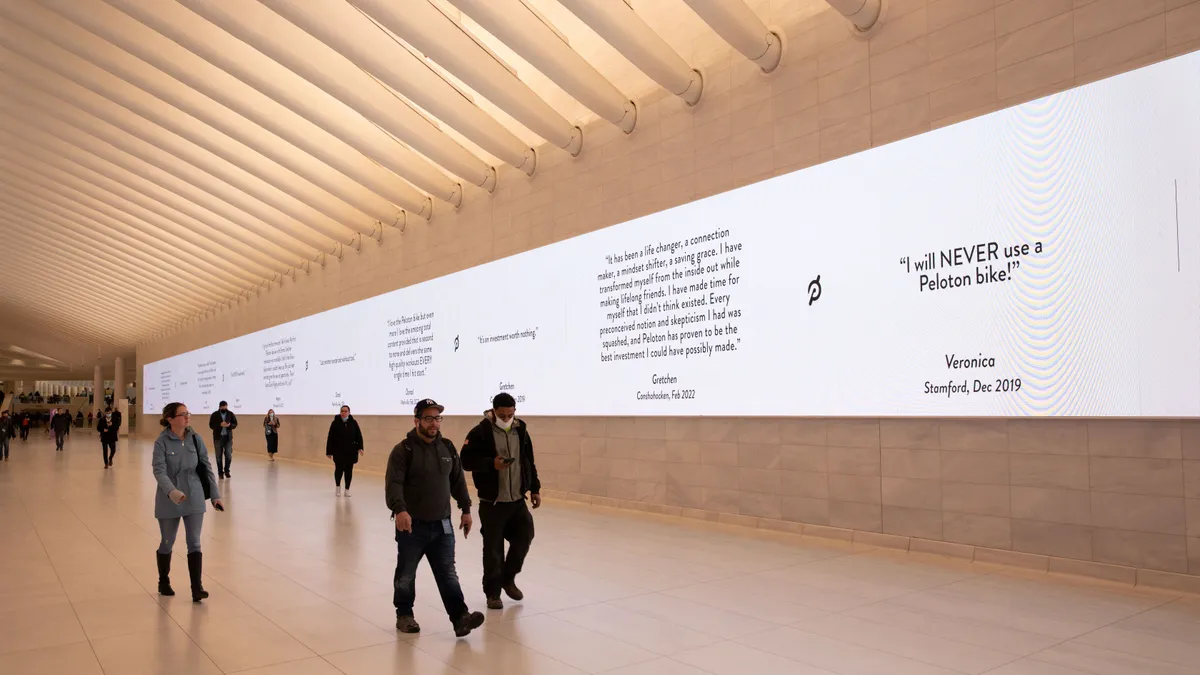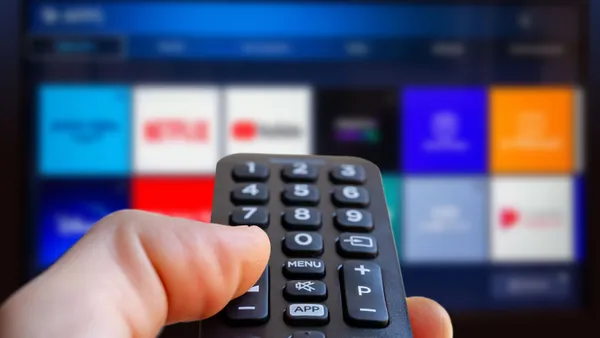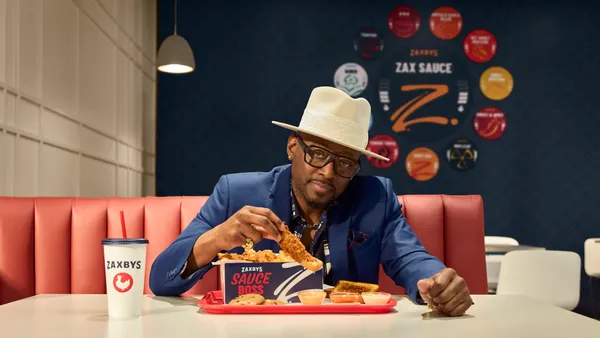UPDATE: Feb. 22, 2022: Peloton has started offering partial refunds for orders that have been hit by delays as a result of operational changes, as well as waivers for members whose repairs or swaps have been impacted, according to a copy of a note to members that the brand shared with Marketing Dive. Several customers had complained about the delays in social media posts attached to Peloton's newly launched marketing campaign.
Read a portion of the note sent on Feb. 19 here: "As many of you may know, our previous leadership team made certain decisions during COVID regarding the supply chain and operations that did not work. These were made in the hopes of excellence in customer service, but fell short of our standards ... Under the guidance of our new management team, Peloton is acting decisively and hitting the reset button while working to optimize our operations, delivery logistics, and service."
Dive Brief:
- Peloton is pushing a new advertising campaign that includes testimonials from customers who were initially skeptical of the connected fitness brand but have since become loyal converts, according to details shared in an email with Marketing Dive.
- "Love Every Journey" appears across TV, print, out-of-home (OOH) and social media channels. Instagram posts, including snapshots of OOH placements in high-traffic areas like Times Square, had generated 11 million impressions and 90,000 likes as of a Monday, about double Peloton's usual engagement rate for such efforts, a spokesperson said. A 30-second TV spot also started airing on Feb. 21.
- Peloton is debuting the campaign amid a flurry of bad headlines. The company has enacted extensive layoffs and curtailed production as demand for its at-home fitness equipment cools. Co-founder and CEO John Foley stepped down from his post earlier this month.
Dive Insight:
Peloton's latest ad campaign isn't subtle. The marketer is throwing a spotlight on customers who have doubted it in the past but are now devoted to fitness regimens run through its connected bike and treadmill products. The implication is that Peloton will be able to weather its current headwinds based on its ability to foster long-term loyalty. Its services now wield about 6.6 million subscribers.
"This campaign is leading with the unvarnished voices of our members at a time of heightened skepticism because nothing is sharper than the truth," said Dara Treseder, chief marketing officer of Peloton, in a press statement.
Spare OOH and print ads use black text on a white background to show the journey of various Peloton converts. Initial testimonials associate Peloton with phrases like "scam," "fad" and "overpriced coat rack," only for the same people offering those criticisms to come around and discover their passion for the brand's community. The TV spot takes a more aspirational approach, describing why various people take up Peloton to begin with, whether it's because they want to recapture their college sports glory days or fit into a new pair of leggings.
Posts on social media go deeper in profiling individual users who improved their lives thanks to Peloton. But digging into the comments reveals plenty of frustrated customers as well. Several Instagram users took the campaign as an opportunity to complain about no-show deliveries, issues with scheduling repairs on bikes and other technical issues — potential signs of the marketer's broader operational issues.
Peloton was once a major beneficiary of the pandemic, as consumers were forced to think more about at-home fitness arrangements. But as gyms reopened and COVID-19 restrictions loosened, the company saw demand plummet. Earlier this year, CNBC reported that Peloton would temporarily halt production of its connected fitness products and try to better manage costs. CEO Foley stepped down not long after. About $40 billion has been wiped off Peloton's market capitalization from its pandemic high, while speculation has mounted that the company could be acquired.
With its hardware segment encountering steep challenges, Peloton has been trying to innovate elsewhere. Last week, it introduced a feature called Lanebreak that gamifies the bike-riding experience.















